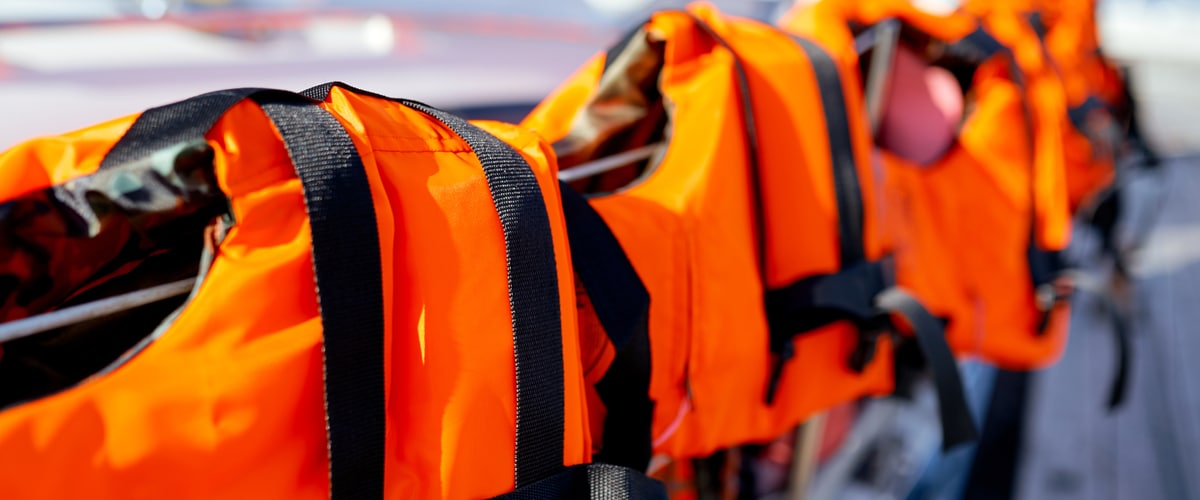
Request Free Consultation
To get answers to questions about your injury, contact Catalano Law for a FREE case evaluation. We’ll assess your case, explain your legal options, and recommend the next steps at no cost. We’re here when you need us.
Contact Form
General Contact Form

Boating is an enjoyable recreational activity but can also be dangerous if you don’t follow proper safety measures on New York waterways. According to New York State Parks, Recreation, and Historic Preservation, there were 18 fatal boating accidents in 2021, with a fatality rate of 4.10 deaths per 100,000 registered watercraft.
Understanding boat operator responsibilities and following boating safety guidelines is crucial to avoiding accidents and enjoying your time on the water.
Before heading out on your first boating excursion this spring or summer, ensure your vessel is properly registered. In New York, all motorized boats must be registered, display their registration number on the vessel’s bow, and place validation stickers within 3” of the registration number.
You must also follow New York’s new safety certification requirements under Brianna’s Law. Boat operators born after specific dates must take an approved boating safety course for certification, with everyone requiring one by 2025. NYS Parks, the U.S. Coast Guard Auxiliary, and U.S. Powerboating provide approved courses.
To ensure the safety of everyone onboard, it’s crucial to have the required safety equipment in good working order. According to New York Law, the following items must be onboard your vessel:
- A US Coast Guard-approved life jacket: Children under 12 must wear a life jacket while on a moving vessel unless in a fully enclosed cabin.
- Fire extinguishers: Boats with enclosed fuel or engine compartments must have at least one approved fire extinguisher. Regularly check the expiration date and ensure it’s in good working condition.
- Visual distress signals: Boats operating on coastal waters, the Long Island Sound, or the Great South Bay between sunset and sunrise must carry visual distress signals, such as flares or an electric distress light.
- Anchors: Boats should have an appropriate anchor and sufficient line to hold the vessel in place for emergencies.
- Horns, bells, and other sound-producing devices: Boats 39.4 feet or longer must have a whistle or horn capable of producing a blast lasting 4-6 seconds and audible for at least half a mile. Vessels 65.6 feet or longer must also carry a bell.
Boating safety starts with knowing how to operate your vessel effectively. Before taking your boat out, familiarize yourself with its controls, handling characteristics, and maneuverability. Understand how to read navigational aids, such as buoys and channel markers, and know the right-of-way rules to prevent accidents on the water.
You’ll also want to understand boater right-of-way rules and how to safely overtake, cross, and pass other boats. For example, the NYS Boaters Guide offers directions and diagrams to help you know how to maneuver your boat safely in these situations.
New York has specific boating regulations to ensure all waterway users’ safety. Take the time to familiarize yourself with the laws governing speed limits, navigation, noise levels, and environmental protection.
For example, you must stay at 5 mph or lower within 100 feet of a dock, pier, shore, float, or other vessels. You must also follow local speed ordinances, such as 45 mph during the day and 25 mph at night. Adhering to these regulations promotes a safer boating environment for everyone.
As the operator of a vessel, you have specific duties and responsibilities to ensure the safety of your passengers and other boaters. These include maintaining a proper lookout, operating at a safe speed, and providing assistance to other boaters in distress. Remember, you are legally responsible for any damage or injury caused by your vessel’s wake.
You must report any boating incident resulting in property damages over $1,000 or a person’s injury, disappearance, or death. New York State requires a written report within 5 days of the accident. However, for collisions involving injury or death, you must notify the police and the OPRHP within 48 hours.
Speak with a Boating Accident Lawyer if You are Injured
At Catalano Law, we encourage all boaters to prioritize safety and familiarize themselves with New York boating regulations. If you’re injured in a boating accident or have questions about your boating rights and responsibilities, our experienced team is here to help.
Contact us today to discuss your boating accident and learn your legal options for compensation.

